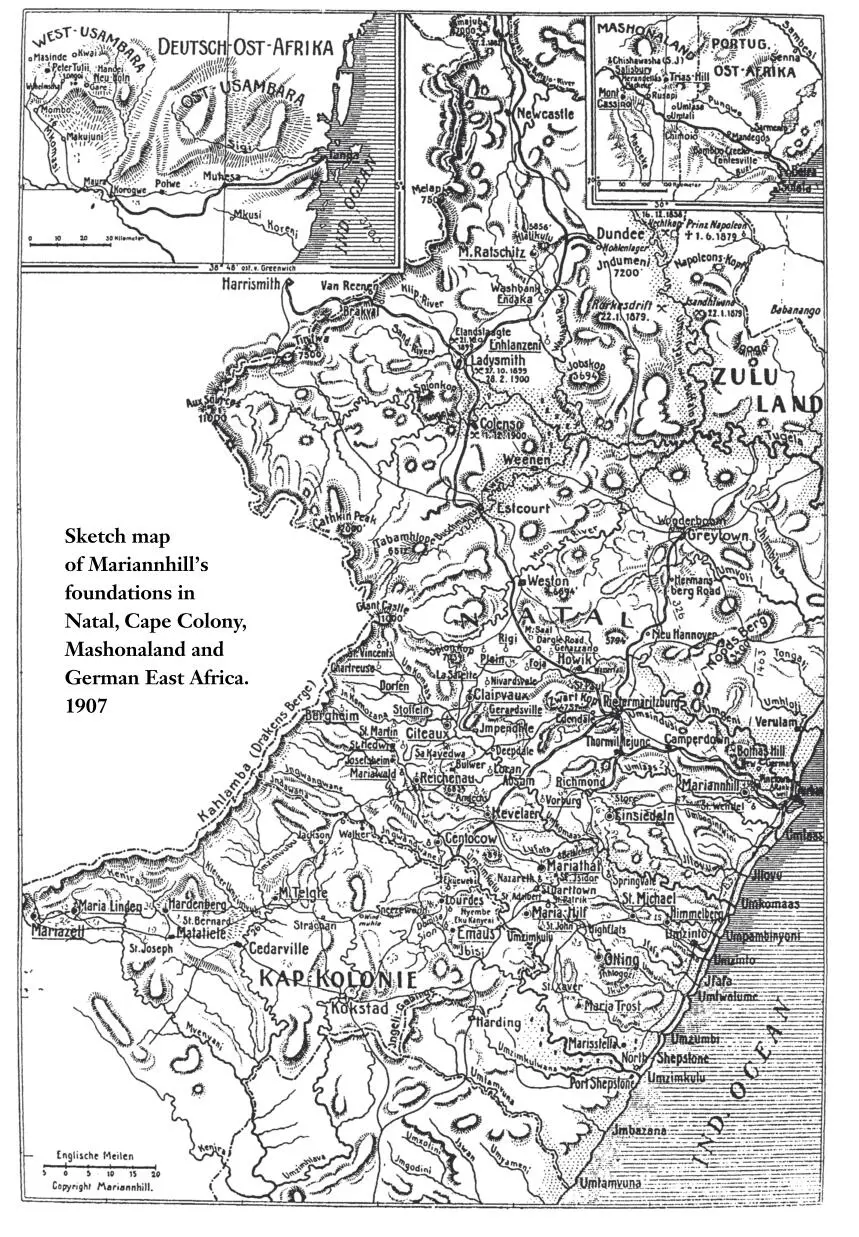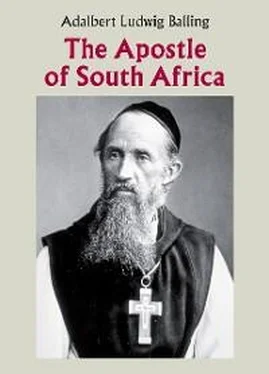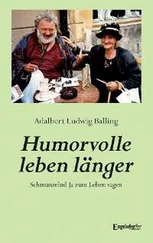Adalbert Ludwig Balling
THE APOSTLE
OF SOUTH AFRICA
or
God writes straight also with crooked lines
Francis Wendelin Pfanner An open-minded monk (1825–1909)
A Biographical Mosaic Portrait Of an “Adventurer in a Cowl” and an “Obedient Rebel”
Translation from the German original
ENGELSDORFER VERLAG LEIPZIG

“Der Apostel Südafrikas”
“The Apostle of South Africa”
First published in Germany in 2011
by Missionsverlag Mariannhill in Reimlingen
Bibliographical information by
German National Library:
Publication listed in German National Library
under “German National Biography”.
Detailed bibliographical information obtainable from
http://www.dnb.de.
ISBN 978-3-96008-125-8
Copyright © 2011/2015
by Adalbert Ludwig Balling
All rights reserved
Photographs: CMM-Archive, Rome/Reimlingen
English Edition printed by
Engelsdorfer Verlag Leipzig
Schongauer Straße 25, 04328 Leipzig
www.engelsdorfer-verlag.de
1st digital edition: Zeilenwert GmbH 2016
Cover
Title Adalbert Ludwig Balling THE APOSTLE OF SOUTH AFRICA or God writes straight also with crooked lines Francis Wendelin Pfanner An open-minded monk (1825–1909) A Biographical Mosaic Portrait Of an “Adventurer in a Cowl” and an “Obedient Rebel” Translation from the German original ENGELSDORFER VERLAG LEIPZIG
Map
Copyright “Der Apostel Südafrikas” “The Apostle of South Africa” First published in Germany in 2011 by Missionsverlag Mariannhill in Reimlingen Bibliographical information by German National Library: Publication listed in German National Library under “German National Biography”. Detailed bibliographical information obtainable from http://www.dnb.de . ISBN 978-3-96008-125-8 Copyright © 2011/2015 by Adalbert Ludwig Balling All rights reserved Photographs: CMM-Archive, Rome/Reimlingen English Edition printed by Engelsdorfer Verlag Leipzig Schongauer Straße 25, 04328 Leipzig www.engelsdorfer-verlag.de 1st digital edition: Zeilenwert GmbH 2016
God’s Drummer “Abbot Francis Pfanner died a saintly death. He was a self-sacrificing monk, a missionary on fire to save souls and a successful organizer. His only fault was to have believed that the Trappist contemplative life could be combined with the active life of a missionary. He will go down in history as one of the most outstanding men in a long line of missionary heroes. The Almighty chose to give him a heavy cross; carrying it with fortitude, he became a saint.” 1
I. Langen-Hub near Bregenz
II. Parish Priest. Confessor to Sisters and Convicts
III. Pilgrimage to the Holy Land
IV. Mariawald Monastery
V. The Cross and the Crescent
VI. Daily Cares. Soliciting Vocations and Support
VII. Building Projects Completed
VIII. A Promotional Campaign with a Difference
IX. Opposition from all Sides
X. Years of Struggle
XI. The Eve of an Unknown Future
XII. If No One Goes, I Will
XIII. Setting Out to New Shores
XIV. In the Semi-Desert of Dunbrody
XV. Traveler Between Two Worlds
XVI. Preparing for the Great Trek
XVII. The Ricards vs. Pfanner Lawsuit
XVIII. Mariannhill flourishes
XIX. Mariannhill – Proto-Abbey in South Africa
XX. Mariannhill Pushes Boundaries
XXI. Monks or Missionaries?
XXII. Of Marriage, Schools and various Troubles
XXIII. Missionary Vigour
XXIV. The Monastery grows and grows
XXV. A Jubilee at Mariannhill. A General Chapter in Rome.
A Promotional Tour in Europa
XXVI. Strunk and Pfanner Clash
XXVII. Abbot emer. Francis does not Give Up
XXVIII. Emaus – United in Prayer
XXIX. Monk, Missionary and Hermit
XXX. New Abbot – New Rules
XXXI. The Founder’s Magical Repertoire: Old Ideas and New Propositions
XXXII. God’s Kingdom has no Boundaries
XXXIII. Friendly Letters from the Cape of Good Hope
XXXIV. Varia et Curiosa under the African Sky
XXXV. What is the Future? What the Solution?
XXXVI. The 81-year-old Abbot rallies
XXXVII. Trials and Sufferings
XXXVIII. In Franz Pfanner’s Footsteps
XXXIX. Epilogue & After Words
THE ABBOTS OF MARIANNHILL
Mariannhill Biographies
Footnotes
“Abbot Francis Pfanner died a saintly death.
He was a self-sacrificing monk, a missionary on fire to save souls and a successful organizer.
His only fault was to have believed that the Trappist contemplative life could be combined with the active life of a missionary.
He will go down in history as one of the most outstanding men in a long line of missionary heroes.
The Almighty chose to give him a heavy cross;
carrying it with fortitude, he became a saint.” 1
A Man of the Hour – Apostle of the Zulus
“Live with your century, but do not be its creature!” was Friedrich Schiller‘s advice to his contemporaries. For Francis Wendelin Pfanner, an Austrian from the north-western part of Vorarlberg, the need to obey God was not in question. Neither did he doubt the value of qualities like commitment, valour or boldness. These enabled him to accomplish the goal he had set for himself: to advance the Kingdom of God in all circumstances and in the face of any resistance. He constantly asked himself: Is what I am trying to achieve God’s will, or am I simply seeking my own ego? Is it beneficial to others or are my wishes and expectations dictated by self-glory and the quest for approval?
In Wendelin Francis’ case, nothing at all and certainly not undue solicitude for his health and life, was allowed to stand between him and God. It will be seen that the “Apostle of the Zulus” was a non-conformist. No matter what his undertakings, his charism invariably made a powerful impression. He drew crowds of listeners and admirers wherever he went – to Tyrol, Carinthia, Vienna, Linz, Bavaria, Eastern Prussia, Silesia, Saxony, Croatia, Bosnia-Herzegovina, Natal or other parts of South Africa. The vigour with which he “beat the drum for the missions” was unique. Wherever he appeared in public, people felt challenged. His enthusiasm was infectious; he swept his listeners off their feet. They realized that here was one who fought God’s battles, though his higher superiors or one or other church prelate might want to stop him. He was a man of the hour, a man of his times. Towards the end of his life he chafed under the cross God gave him. But when at the age of almost eighty-four he died, many contemporaries considered him a saint.
More than a hundred years after his death, we ask: What was so special about Wendelin Francis Pfanner? Why all the fuss about a contemplative monk, a Trappist whose rule “condemned him to lifelong silence”? Some answers come spontaneously: The monk and missionary Francis Wendelin put heart and soul into both his vocations; not only did he honour the Benedictine motto ora et labora (pray and work), but he also recognized the power of the press as an effective instrument for carrying on the work of evangelization and promoting religious and missionary vocations. Last but not least, he was known for his fervent devotion to the Sacred Heart, Christ’s Precious Blood and the Blessed Mother.
Abbot Francis Pfanner is righty credited with spearheading the evangelization of the Zulus. Therefore, he deserves to be called the Apostle of South Africa. He was an energetic advocate of the dignity of every man, woman and child, a champion of racial equality and a resounding voice calling for the Church to become socially engaged. He was the first to send African boys to Rome to study for the priesthood. But he was also, especially in his last years, a loyal monk, resigned to the Will of God and ready to accept and bear suffering, pain and sickness for God’s sake. This attitude of generous surrender made him a role model for many.
Читать дальше













